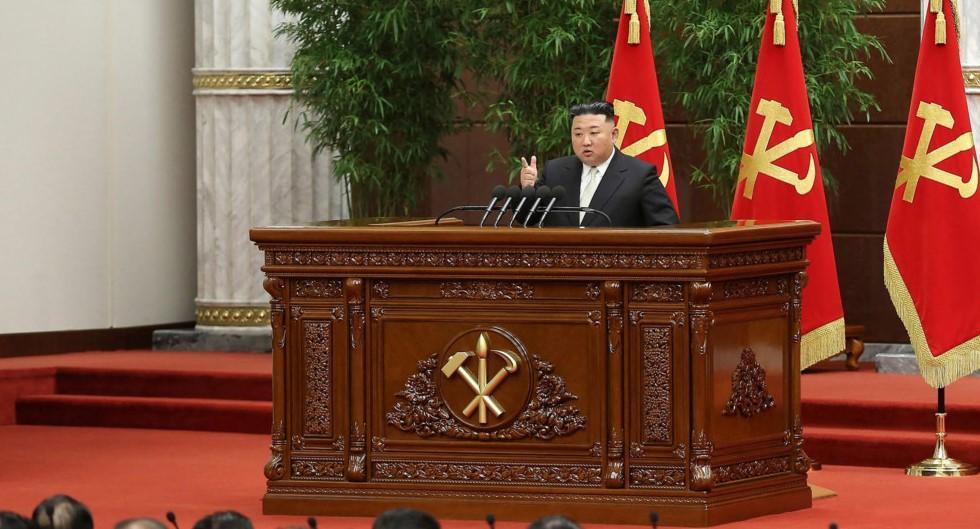
North Korean leader Kim Jong Un urged government officials to make sure the country meets its grain production goals “without fail,” state media said yesterday, amid reports Pyongyang’s food shortage is worsening.
The isolated, nuclear-armed nation, which is under multiple sets of sanctions over its weapons programs, has long struggled to feed itself.
North Korea has also been under a rigid self-imposed coronavirus blockade since early 2020 to protect itself from the COVID-19 pandemic, only resuming some trade with China last year.
Kim “ardently called for attaining this year’s grain production goal without fail,” on March 1, the last day of a key meeting by the ruling party, the country’s official Korean Central News Agency reported.
“In order to increase the nationwide agricultural output, attention should be paid to overcoming the lopsidedness in the guidance on farming ... and it is important to concentrate on increasing the per-hectare yield at all the farms,” the report added.
The latest report comes after Kim on Feb. 27 called for a “fundamental transformation” in the country’s agricultural production, and South Korea’s Unification Ministry said last month there had been reports of starvation deaths in the North.
“We judge the food shortages there to be grave,” ministry spokesman Koo Byoung-sam said in February, adding Pyongyang appeared to have requested food aid from the World Food Program (WFP).
The impoverished North has long been criticized for prioritizing its military and banned nuclear weapons programs over adequately providing for its people.
In 2021, Kim made rare references to the hardship, saying the food situation in the North was getting “tense” and warning the people to prepare for the “worst-ever situation.”
In the same year, Pyongyang’s state-run KCTV admitted the country was facing a “food crisis.”